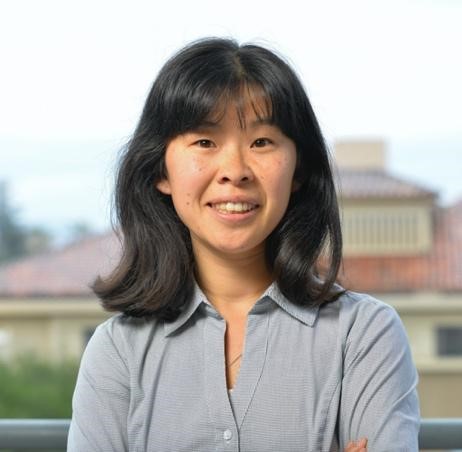In-situ Deformation of Metals under Hydrogen and High Pressure
 SPEAKER:
SPEAKER:
Wendy Gu
Assistant Professor of Mechanical Engineering, Stanford University
DATE/TIME: MON, 09/11/2023 – 3:00PM TO 4:00PM LOCATION: 3105 ETCHEVERRY HALLAbstract
Understanding hydrogen degradation of metals is critical to the green hydrogen economy. Here, I will describe the synchrotron transmission X-ray microscopy (TXM) to image iron thin films that simultaneously undergo electrochemical hydrogen charging. This enables the observation of void-mediated crack growth, the coalescence of the primary crack with secondary cracks, and cracks and additional plasticity occur at grain boundaries during transgranular failure. These observations are discussed in the context of the prevailing hydrogen embrittlement mechanisms. Next, I will describe the use of diamond anvil cells (DAC) to compress lightweight alloys and nanoparticles under quasi-hydrostatic and non-hydrostatic stress. X-ray diffraction is used to monitor structural changes in-situ, and post-compression TEM is used to directly image these changes. We find that non-hydrostatic pressure leads to a significant increase in defect density, elevated strength and the nucleation and growth of precipitates in precipitate hardened Al7075.
Bio
Wendy Gu has been an Assistant Professor of Mechanical Engineering at Stanford University since 2017. Before this, Wendy received her MS/PhD from Caltech in 2014, and was a postdoc at UC Berkeley from 2015-2017. Her research focuses on lightweight architected materials, nanostructured metals and structural alloys, design and mechanics of energy materials (batteries, hydrogen economy, soft magnetic composites), and materials for extreme environments (e.g. high pressure). Major techniques within the group include nano-mechanical testing and in-situ imaging using transmission and scanning electron microscopy, synchrotron X-ray diffraction and imaging nano-synthesis and self-assembly, and 3D printing. Wendy is the recipient of the DOE Early Career Award, the ARO Young Investigator Award, the ACS Petroleum Research Fund Doctoral New Investigator Award, and the Hellman Scholar Award.